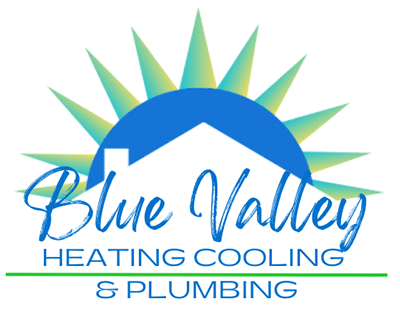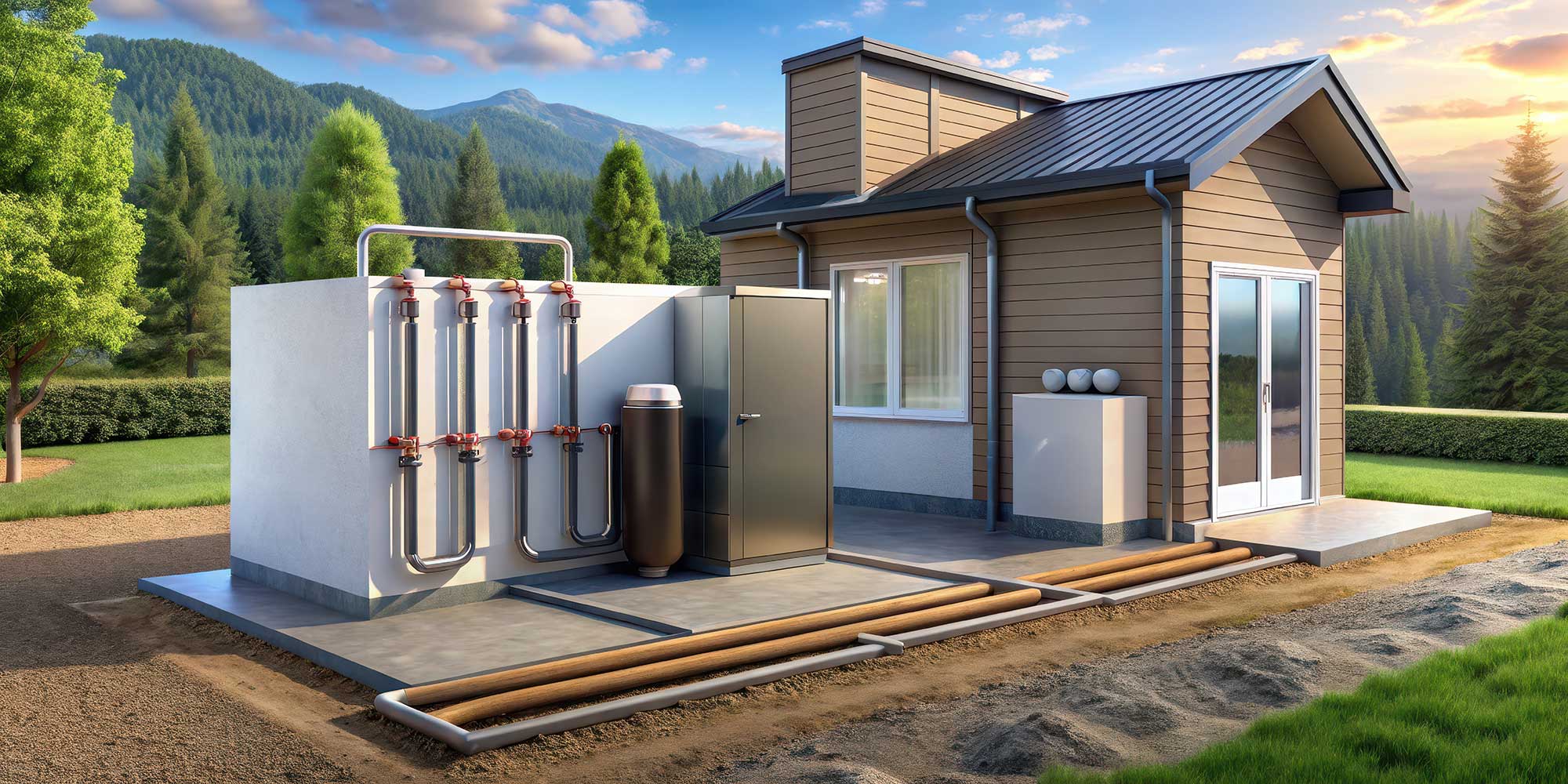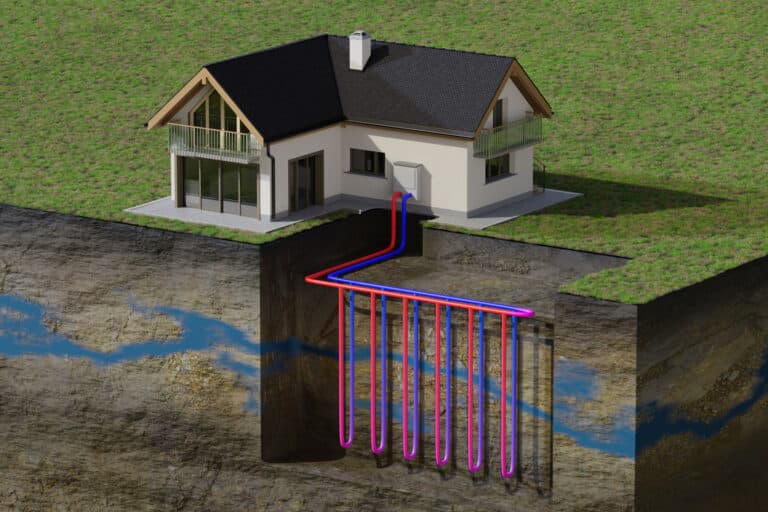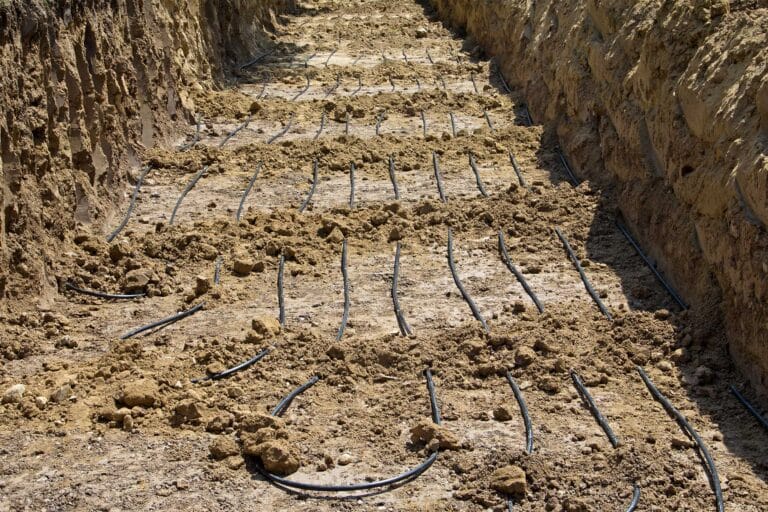Geothermal Heat Pumps vs. Air Source Heat Pumps for Colorado
For heating and cooling your home in Colorado, two popular options are geothermal heat pumps and air source heat pumps. Both provide energy-efficient, eco-friendly alternatives to traditional HVAC systems. But which one is best suited for Colorado’s unique climate and terrain?
Let’s explore the key differences and advantages of each system to help you make an informed choice for your home or small business.
What Are Geothermal Heat Pumps?
Geothermal heat pumps harness stable underground temperatures to regulate indoor climate year-round. Geothermal systems are different from those that use outdoor air.
In winter, they take heat from below the Earth’s surface. In summer, they release heat back into the ground. This consistency makes them highly efficient regardless of weather conditions.
Blue Valley Heating & Cooling has been designing and installing geothermal systems across Boulder, Longmont, and surrounding areas since 2008. Our award-winning team brings experience and precision to every geothermal project, whether for homes or commercial buildings. Learn more about our geothermal heating and cooling systems.
What Are Air Source Heat Pumps?
Air source heat pumps extract heat from outdoor air to warm your home and reverse the process to cool it. They’re more affordable upfront and have significantly improved in performance—especially in colder temperatures—over the past decade.
These systems are common in city and suburban homes. People especially use them where the property cannot have underground loops for geothermal systems.
Air source heat pumps are also easier to install and less invasive. For many homeowners, this is a good way to start using energy-efficient HVAC. This is especially true when upgrading from an old furnace or central AC unit.
Efficiency in Colorado’s Climate
Colorado’s climate, particularly in Boulder, Larimer, and Weld counties, brings cold winters and moderate summers. This affects how both systems perform:
For homeowners in higher elevations or colder areas, geothermal tends to be the more reliable choice year-round.
Cost Comparison
Here’s how both systems compare across several key factors:
|
Feature |
Geothermal Heat Pump |
Air Source Heat Pump |
|---|---|---|
|
Upfront Cost |
Higher |
Lower |
|
Energy Efficiency |
Extremely high (up to 500%) |
Moderate to high (up to 300%) |
|
Long-Term Savings |
Significant over 10–15 years |
Moderate |
|
Maintenance |
Low |
Low to Moderate |
|
Incentives Available |
Yes (federal + state) |
Yes (some rebates available) |
While geothermal systems require a larger upfront investment, they pay off with significantly lower utility bills and longer lifespans. In many cases, federal tax credits and local rebates help offset the initial costs. Blue Valley also offers flexible financing options to make geothermal more accessible.
Lifespan and Value Over Time
Choosing a heating and cooling system is not just about the cost. It is also about comfort, reliability, and sustainability over time.
If you plan to live in your home for a long time, geothermal systems are a good choice. They are durable and can save you money over the years.
Light Commercial Applications
Geothermal and air source heat pumps are great choices for light commercial buildings. This includes offices, clinics, and small retail spaces in Colorado. Blue Valley creates custom HVAC systems for your business. These systems ensure comfort, efficiency, and cost control.
In commercial settings, geothermal systems offer great value. They provide steady performance that stabilizes indoor environments. This helps reduce energy use and supports sustainability efforts. These initiatives attract both customers and employees.
Installation Considerations and Property Requirements
One of the main differences between geothermal and air source systems is how installers set them up. Each system works best in different types of properties.
Geothermal heat pumps need underground loops. You can install these loops either horizontally or vertically, based on the land available. Vertical loops are ideal for smaller properties but can be more costly because of drilling.
Horizontal loops need more surface area and are more suitable for rural homes or those with large yards. If your property is hard to reach or in a crowded area, installation might be more difficult.
Air source heat pumps, on the other hand, are easier and quicker to install. They require less space, and there’s no need for excavation or drilling. If you’re looking for a quicker installation process with fewer site requirements, air source may be the way to go.
Blue Valley’s experts thoroughly analyze the site before suggesting a system. This ensures your choice works well for your location and building layout.
Final Thoughts:
So, which system is right for you?
For a cheaper installation in a milder area of Colorado, an air source heat pump might work well for you. To achieve maximum efficiency, reliability in cold weather, and long-term savings, choose geothermal heat pumps. They are a great option, especially in Colorado’s changing climate.
Blue Valley Heating & Cooling has been helping homeowners and business owners in Boulder, Larimer, and Weld counties since 2008. They provide sustainable HVAC solutions. Let us help you determine the best option for your space, budget, and long-term goals.
Contact us today to speak with a certified technician.



